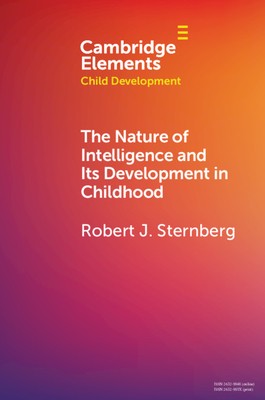
- We will send in 10–14 business days.
- Author: Robert J Sternberg
- Publisher: Cambridge University Press
- ISBN-10: 1108791530
- ISBN-13: 9781108791533
- Format: 15.2 x 22.9 x 0.4 cm, softcover
- Language: English
- SAVE -10% with code: EXTRA
The Nature of Intelligence and Its Development in Childhood (e-book) (used book) | bookbook.eu
Reviews
Description
In this Element, I first introduce intelligence in terms of historical definitions. I show that intelligence, as conceived even by the originators of the first intelligence tests, Alfred Binet and David Wechsler, is a much broader construct than just scores on narrow tests of intelligence and their proxies. I then review the major approaches to understanding intelligence and its development: the psychometric (test-based), cognitive and neurocognitive (intelligence as a set of brain-based cognitive representations and processes), systems, cultural, and developmental. These approaches, taken together, present a much more complex portrait of intelligence and its development than the one that would be ascertained just from scores on intelligence tests. Finally, I draw some take-away conclusions.
EXTRA 10 % discount with code: EXTRA
The promotion ends in 20d.02:02:57
The discount code is valid when purchasing from 10 €. Discounts do not stack.
- Author: Robert J Sternberg
- Publisher: Cambridge University Press
- ISBN-10: 1108791530
- ISBN-13: 9781108791533
- Format: 15.2 x 22.9 x 0.4 cm, softcover
- Language: English English
In this Element, I first introduce intelligence in terms of historical definitions. I show that intelligence, as conceived even by the originators of the first intelligence tests, Alfred Binet and David Wechsler, is a much broader construct than just scores on narrow tests of intelligence and their proxies. I then review the major approaches to understanding intelligence and its development: the psychometric (test-based), cognitive and neurocognitive (intelligence as a set of brain-based cognitive representations and processes), systems, cultural, and developmental. These approaches, taken together, present a much more complex portrait of intelligence and its development than the one that would be ascertained just from scores on intelligence tests. Finally, I draw some take-away conclusions.


Reviews